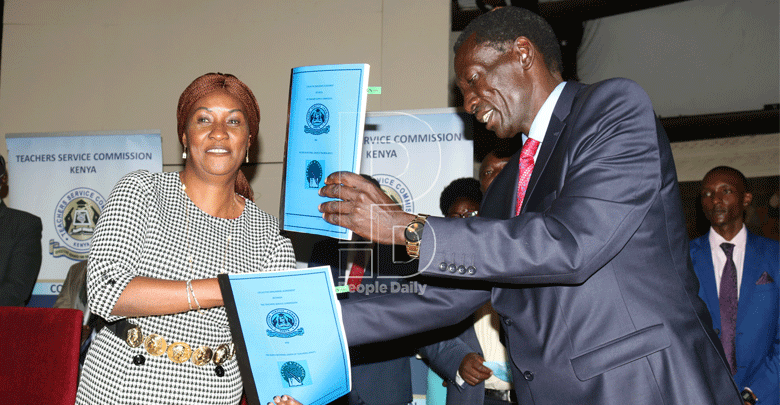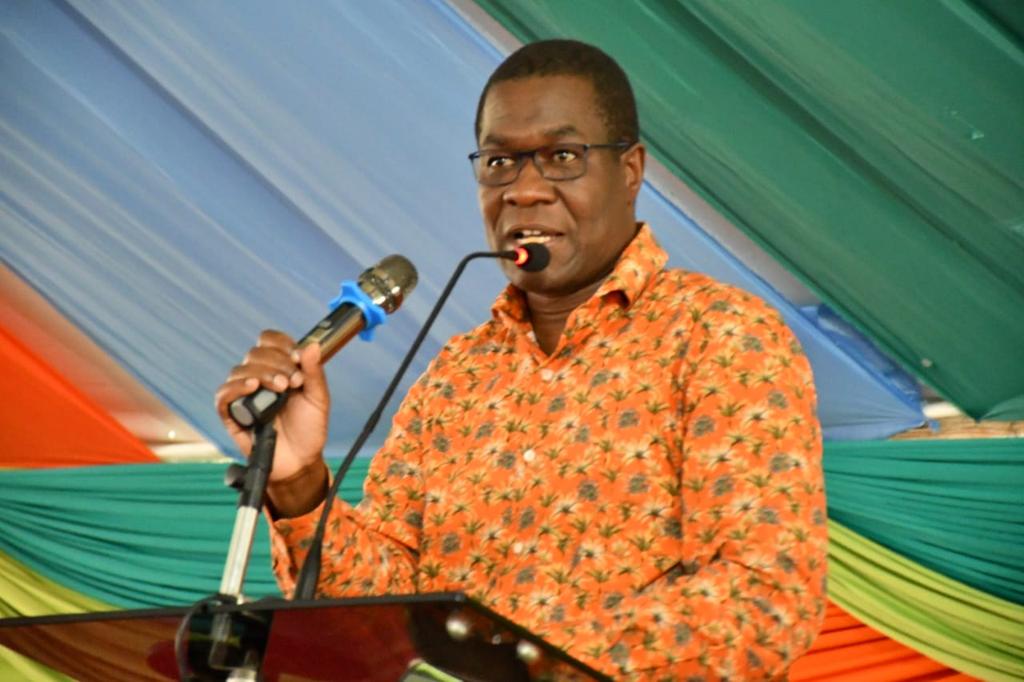Why teachers’ unions signed no salary rise deal with TSC

More than 330,000 teachers will have to wait longer for a pay rise after their representatives yesterday signed a new agreement with their employer only covering improved working conditions.
Following day-long deliberations between the Kenya National Union of Teachers (Knut), Kenya Union of Post Primary Education Teachers (Kuppet) and Kenya Union of Special Needs Education Teachers (Kusnet) on one side and the Teachers Service Commission (TSC), the unionists agreed to a new Collective Bargaining Agreement (CBA) for the period between 2021-2025.
Under the new CBA, teachers will not be entitled to salary increments for at least two years, in line with guidelines from the Salaries and Remuneration Commission (SRC) freezing any pay rise for public servants for two years.
Instead, teachers will only benefit from an expansion of maternity leave from a period of 90 days to 120.
Under the new CBA, promotions in arid and semi-arid areas will also be fast-tracked. The agreement also includes the newly passed pre-adoptive leave for parents exploring adoption to bond with their children.
Basic pay
Speaking after signing the agreement at Safari Park hotel, Kuppet Secretary General Akelo Misori said the basic pay increment of between 30 – 70 per cent proposed by the union was not factored in the new CBA because of the “state of the economy at the moment”.
“All other things are agreeable and we hope members will bear with the circumstances but with the hope that within the next few months or in one year, we will be able to negotiate on the issue of basic pay,” said Misori.
Misori said it has been a tough journey to get to where they are now but they will continue negotiating with TSC to ensure teachers’ pay is also addressed.
“We are also ring-fencing all the gains that teachers have had over the years.
One pending issue is on what happens to the basic pay and this is being addressed but we know that once TSC gets the go-ahead within a year or any other period, we will make it known when things improve so that we can get what we had outlined as basic pay,” said Misori.
Knut Secretary General Collins Oyuu, who termed the day as historic for teachers, however, regretted that the highly-anticipated pay increment had not been factored in the new CBA.
“CBA is not an event, it is a process. We want to tell our members that hope is still there. We have room to sit with TSC and review the document,” said Oyuu.
He assured teachers that as the economy improves, there will be room to fight for a salary increase.
Other than monetary gains, Oyuu said the unions had successfully negotiated a number of benefits for teachers which they will make public in due course.
He said that both the teachers’ employer and the unions were committed towards negotiating a salary increment for teachers.
“We will review this issue of basic pay. We will look at what was the counter offer from TSC and work with experts to ensure what we come out with will hold water.
It is on the same basis that we will continue to engage TSC relentlessly on the process we have started in actualising the CBA and finally signing it,” he said.
He told teachers that all was not lost and that the union will continue engaging positively so that better terms and conditions of service for which the officials are elected to agitate for are realised.
TSC Secretary Nancy Macharia thanked the unions for agreeing to sign the new CBA and assured that the teachers’ employer welcomed further negotiations on the outstanding issues.
She attributed the failure to incorporate the salary increment in the new CBA to the SRC freeze on salary reviews in the public sector.
She said the commission also considered the economic situation currently prevailing in the country.
“To maintain industrial relations with the union, the TSC invited the unions yesterday for a second meeting in under a month and they reached a deal.
The commission has signed a new CBA with the three recognised teachers’ unions to cover the period 2021-2025 and although they have signed it, there is room for opening up if things get better,” said Dr Macharia.
She commended the unions for showing restraint and sacrifice during negotiations in the midst of harsh economic times, even as she promised to work round the clock to improve conditions of service for the over 330,000 teachers.












